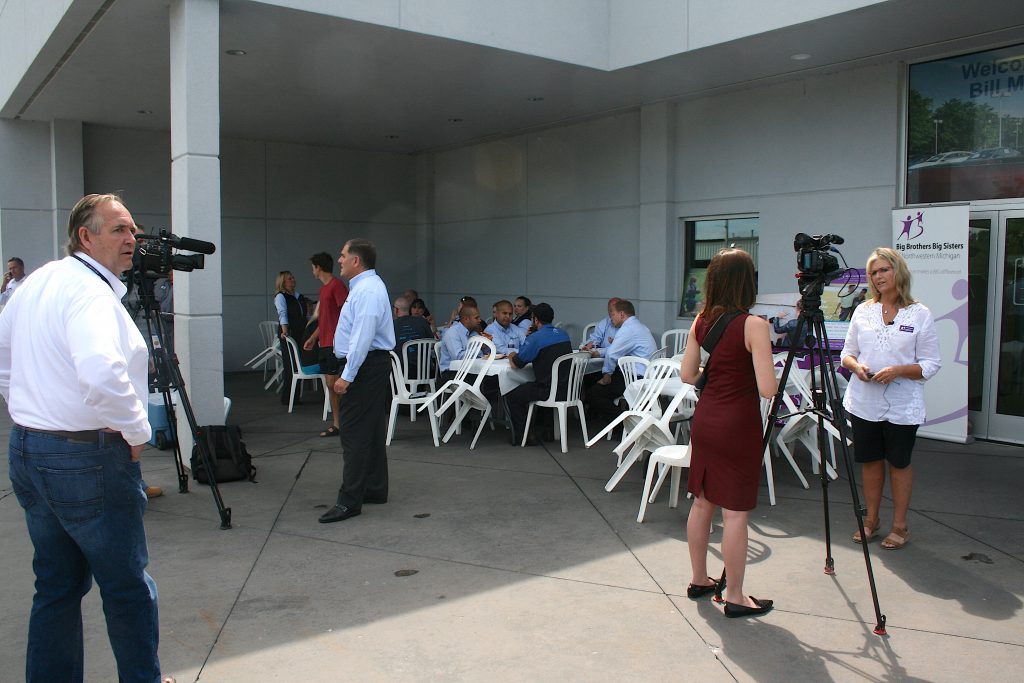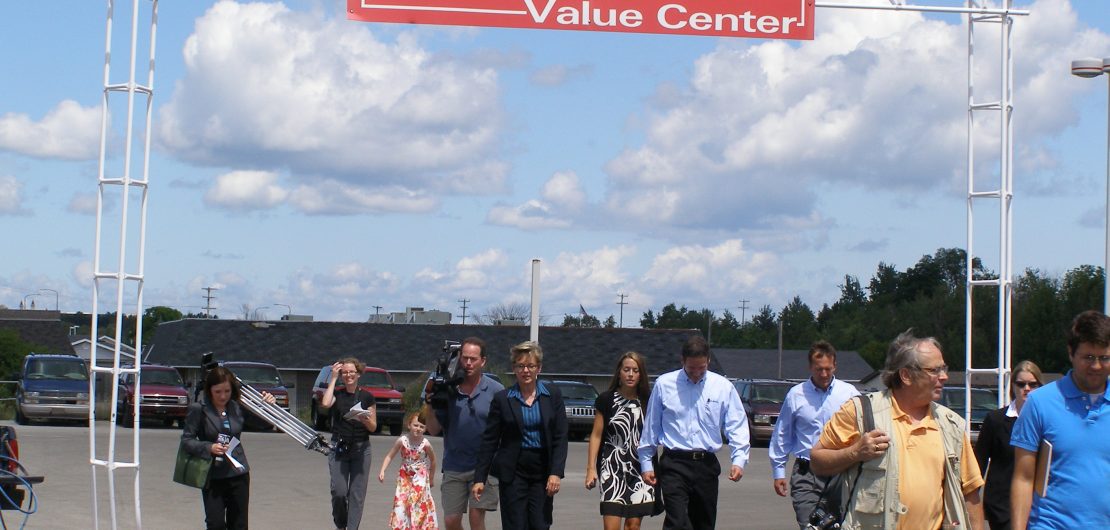
Does news coverage create opportunity or fear?
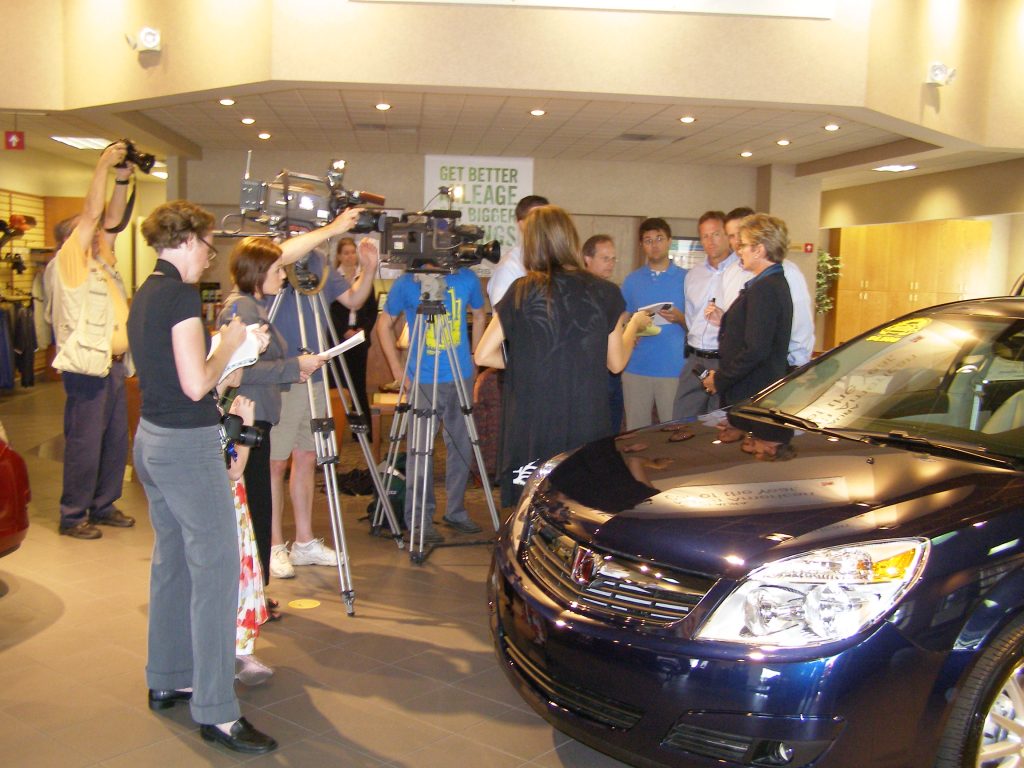
There’s an old joke that says, “You know it’s going to be a bad day when there’s a 60 Minutes crew waiting for you in your office.” On my list of “bad days,” I would probably put this to the very bottom of my list. I think the top of my list would be a northern Michigan April blizzard. No, that 60 Minutes crew, to me, would be the sign of a great day.
For many, the thought of a news crew coming to see you, can create a deep feeling of dread. Even if you are comfortable talking to groups of people, the moment they turn on the camera light and start asking you questions – your mind takes you back to elementary school when you were about to take a test that you forgot to study for.
I have always taken a different approach. Any chance I get to be in front of a news crew is an opportunity. It’s an opportunity to explain your side of a story. It’s a chance to promote your business, your event, your employees or a cause you are passionate about.
Now, I have to admit that I may have a bit of an advantage. I worked in the news business for 17 years as a reporter and a news manager and I have an understanding of what news crews need. For the most part, especially in a smaller market like Traverse City, reporters are not looking to skewer you. They are looking for information and they always have a tight deadline. If you can tell your side of the story and give it to them in a timely fashion you will immediately establish credibility.
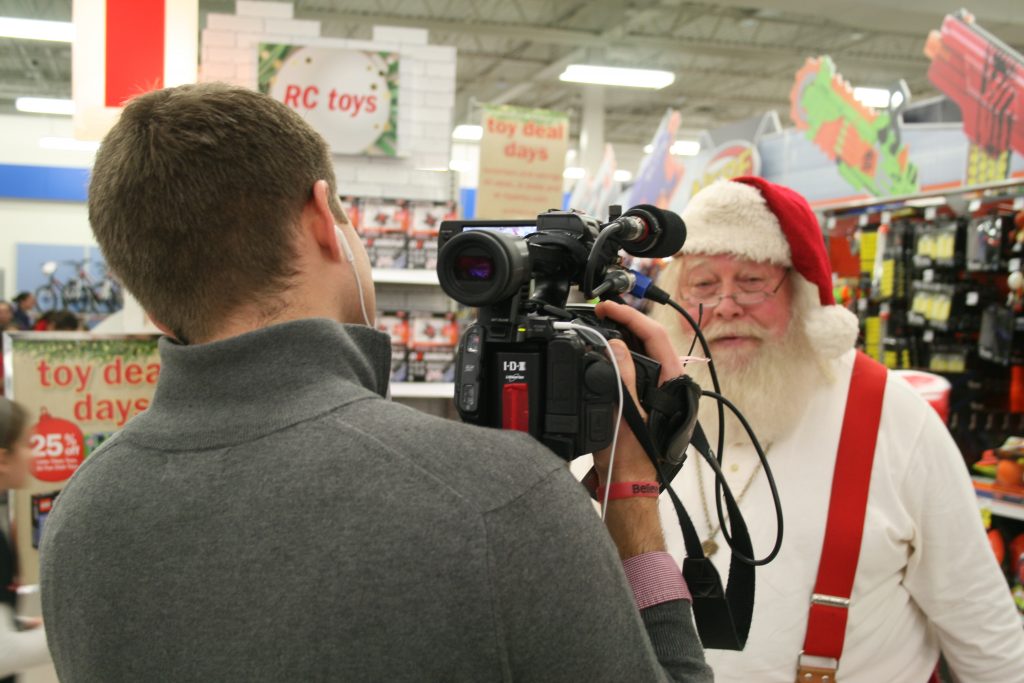
Since I left the news business, and to this day, I tell reporters that they have open access to me. If I know something about a topic, I will tell them whatever I can legally tell them. When I worked for a car dealership, reporters knew they could always swing by our dealership if they are doing any kind of automotive story. If they needed video at a dealership, they could shoot any time of the day or night. I would make myself available for good stories and bad stories. I would make time at all hours and on holidays.
This approach was tested when the economy imploded in 2008. Few businesses were hurt as hard as the auto business. In northern Michigan, I don’t think any dealership group was hit as hard as where I worked at Bill Marsh. We lost Saturn (which typically sold about 100 vehicles a month) and Pontiac. Both General Motors and Chrysler filed for bankruptcy, and we had no idea if they were going to survive. While Ford managed to avoid bankruptcy, we did not have a Ford dealership at that time. Our emergency plan was to become a big used car dealership if we lost both of those manufacturers.
The auto business was in the news on nearly a daily basis. And reporters were told we would be available to talk about any news story that impacted us. Through the non-stop coverage of the auto plight, I can only remember one dealership story that did not include someone from Bill Marsh responding to the news.
I was challenged about that position. Was it wise to be the one talking about all this negative news? For me, the answer was clearly “yes.” Every time we were interviewed, it allowed us to frame the discussion of the issue. We didn’t leave it up to others. Don’t get me wrong – it wasn’t always easy. But we were always honest. We were always available.
And in July of 2009 when Governor Jennifer Granholm was looking for a dealership where she could talk about the bailout program called “Cash For Clunkers,” her staff tracked us down and wanted to walk our lot and learn about the program’s impact. There was a photo of the governor talking to a little red-haired girl on the lot with the “clunkers” lined up behind them. It was priceless! We were part of a national story and again, we were able to tell our side of that story.
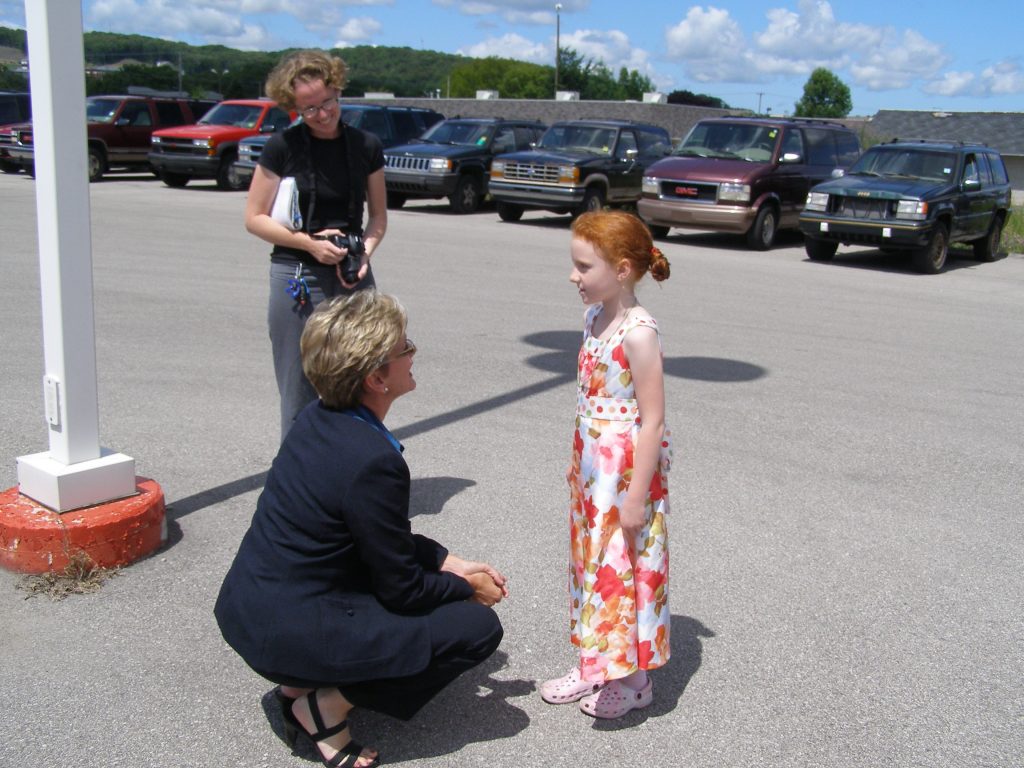
There are techniques to help ease the stress of doing a news interview. These can apply to television, radio, newspaper and digital interviews.
- Have one clear message you want to convey. Make it early in the interview and see if you can repeat it.
- Don’t wing it. Take time to prepare. Even one minute to think about your message can be the difference of having confidence or not. It’s also true if a reporter calls you up on the phone. Excuse yourself for even 30-seconds and take a moment to think of your key message.
- Only speak of what you know. Don’t speculate or get forced into answering questions you know nothing about.
- Be enthusiastic. Your voice should show emotion and conviction.
- When appropriate – smile.
- Have one clear message you want to convey.
- Keep your comments short and as simple as possible. TV reporters are often looking for a “quotable-quote” that only lasts a few seconds.
- Tell the truth.
- You don’t have to say everything. There could be legal reasons not to respond to a question. That’s especially true when employees are involved.
- Have one clear message you want to convey.
- If you are comfortable using hand gestures, do it. That will help you relax.
- In a studio interview, lean forward a bit in your chair. It gives non-verbal communication that you are engaged.
- Have one clear message you want to convey.
You may have noticed there was one key point I tried to emphasize. That was to: Have one clear message you want to convey. It’s remarkable when you have a clear message to get across, you are better able to frame the discussion of the issue. It also helps you relax.
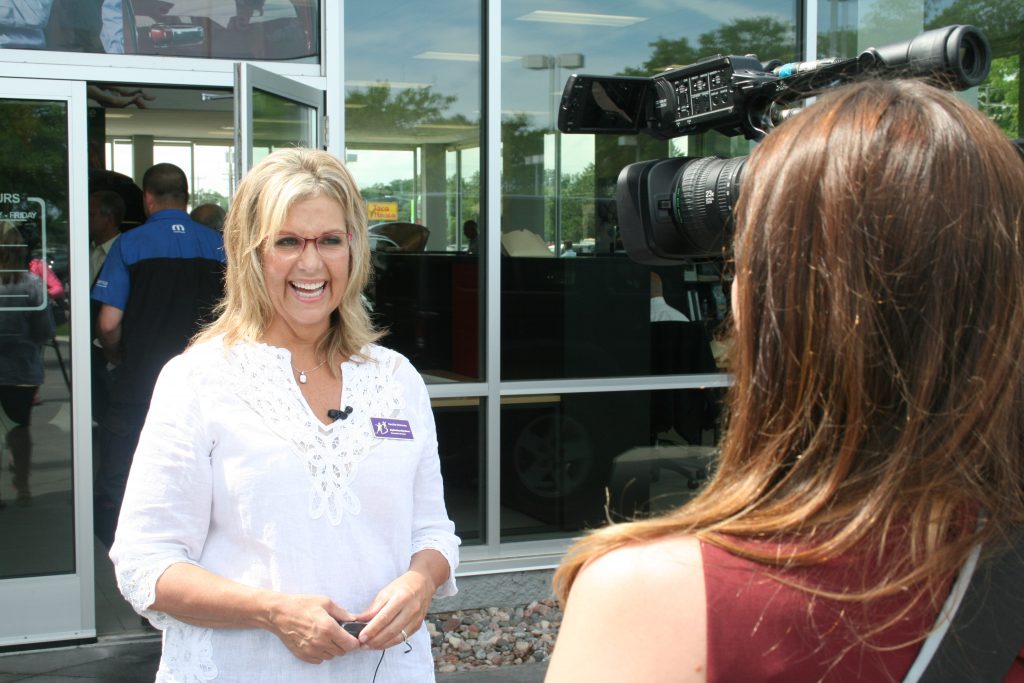
For many years I conducted media training classes around the state. The goal was always to teach participants how you attract news attention, and how to make the most of it once you get their attention. Months later I ran into people who took the class. They always commented that as long as they had a clear message, the interviews were easy.
Working with the news media is all about opening up opportunity. Facing a reporter doesn’t have to be something you fear. Bring on 60-Minutes, or TV 7&4, or TV 9&10, or NPR. You can handle it.
